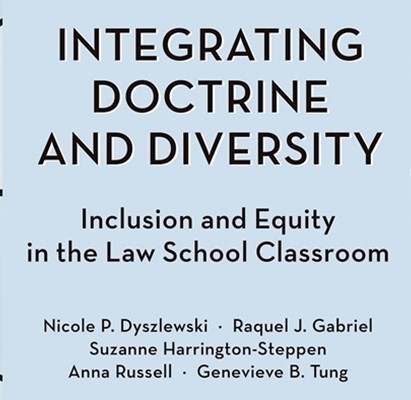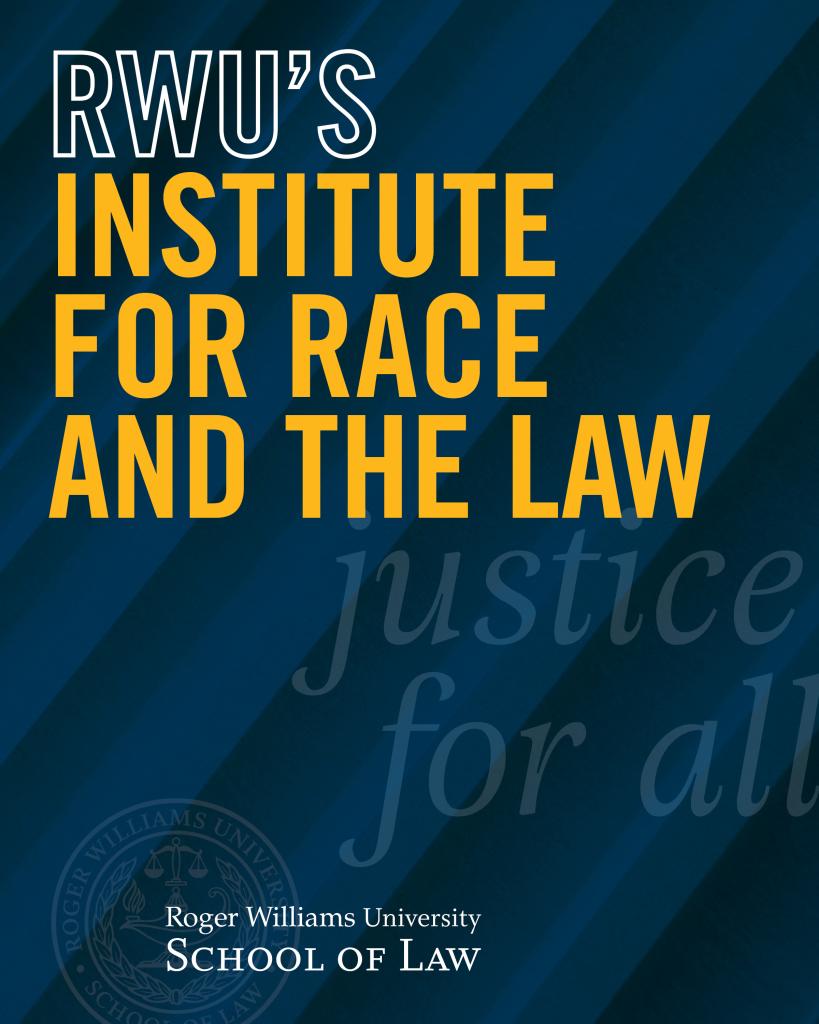2020 - Present
“Not adapting puts the entire enterprise of legal education at risk – and thus places our democratic society and ideals at risk. And so we must innovate in the face of uncertainty.”
~ RWU Law Dean Gregory W. Bowman
2020
 When the COVID-19 pandemic puts a stop to in-person classes in March, RWU Law's faculty has just two weeks to train before moving all classes online. Though most had never taught online before, they rise to the challenge admirably. RWU Law students do so as well, maintaining strong academic and experiential engagement under considerable stress and adversity.
When the COVID-19 pandemic puts a stop to in-person classes in March, RWU Law's faculty has just two weeks to train before moving all classes online. Though most had never taught online before, they rise to the challenge admirably. RWU Law students do so as well, maintaining strong academic and experiential engagement under considerable stress and adversity.
 Gregory W. Bowman, a nationally recognized scholar who previously served as dean of the highly regarded West Virginia University College of Law, becomes RWU Law’s sixth dean, effective July 1.
Gregory W. Bowman, a nationally recognized scholar who previously served as dean of the highly regarded West Virginia University College of Law, becomes RWU Law’s sixth dean, effective July 1.
 Soon after the death of U.S. Supreme Court Justice Ruth Bader Ginsburg, RWU Law establishes its annual RBG Essay Contest, inviting Ocean State students from grades K through 12 to submit essays and artworks on how the iconic jurist inspired them.
Soon after the death of U.S. Supreme Court Justice Ruth Bader Ginsburg, RWU Law establishes its annual RBG Essay Contest, inviting Ocean State students from grades K through 12 to submit essays and artworks on how the iconic jurist inspired them.
 Lawyers Weekly selects Professor Deborah Gonzalez as a Rhode Island Lawyer of the Year, citing her outstanding advocacy for the safety of immigrant detainees at Wyatt Detention Center at the height of the Covid-19 pandemic.
Lawyers Weekly selects Professor Deborah Gonzalez as a Rhode Island Lawyer of the Year, citing her outstanding advocacy for the safety of immigrant detainees at Wyatt Detention Center at the height of the Covid-19 pandemic.
2021
 RWU Law’s compelling symposium, “Incitement, Insurrection and Impeachment: Inside the Second Trump Impeachment”, features trial participants Senator Sheldon Whitehouse (D-R.I.), Representative David Cicilline (D-R.I.), and Professor Michael Gerhardt, who served as special counsel to Senator Patrick Leahy (D-Vt.), the presiding officer of the impeachment trial. More than 500 registrants attend the online event.
RWU Law’s compelling symposium, “Incitement, Insurrection and Impeachment: Inside the Second Trump Impeachment”, features trial participants Senator Sheldon Whitehouse (D-R.I.), Representative David Cicilline (D-R.I.), and Professor Michael Gerhardt, who served as special counsel to Senator Patrick Leahy (D-Vt.), the presiding officer of the impeachment trial. More than 500 registrants attend the online event.
 RWU Law makes national headlines as a leader in legal education when it becomes one of the first law schools in the country to pilot and then add a required course on race and the law to its core legal curriculum.
RWU Law makes national headlines as a leader in legal education when it becomes one of the first law schools in the country to pilot and then add a required course on race and the law to its core legal curriculum.
 RWU Law acquires the Journal of Maritime Law and Commerce (JMLC), the premier periodical in the field of maritime law in the United States. Leading the JMLC’s editorial team are Julia Wyman, Director of RWU Law’s Marine Affairs Institute and the Rhode Island Sea Grant Legal Program; Professor Justin Kishbaugh; and Professor Jonathan Gutoff.
RWU Law acquires the Journal of Maritime Law and Commerce (JMLC), the premier periodical in the field of maritime law in the United States. Leading the JMLC’s editorial team are Julia Wyman, Director of RWU Law’s Marine Affairs Institute and the Rhode Island Sea Grant Legal Program; Professor Justin Kishbaugh; and Professor Jonathan Gutoff.
RWU cre ated, along with the City University of New York School of Law and Jurist, an ongoing “Integrating Doctrine & Diversity Speaker Series”. Based on the book, Integrating Doctrine and Diversity: Inclusion and Equity in the Law School Classroom, whose co-editors included two RWU Law instructors: Nicole Dyszlewski and Suzanne Harrington-Steppen, the series is focused on practical strategies for putting DEIB goals into action through the application of more practical strategies for integrating DEIB skills and concepts throughout the law school curriculum.
ated, along with the City University of New York School of Law and Jurist, an ongoing “Integrating Doctrine & Diversity Speaker Series”. Based on the book, Integrating Doctrine and Diversity: Inclusion and Equity in the Law School Classroom, whose co-editors included two RWU Law instructors: Nicole Dyszlewski and Suzanne Harrington-Steppen, the series is focused on practical strategies for putting DEIB goals into action through the application of more practical strategies for integrating DEIB skills and concepts throughout the law school curriculum.
2022
 RWU Law School’s “Race and the Foundations of American Law” course was acknowledged by Bloomberg Law as a top-scoring program under Innovation & Justice. Bloomberg Law launched an inaugural Law School Innovation Program recognizing law schools with innovative programs that advance new methodologies and approaches to student instruction, legal technology implementation and adoption, experiential learning, and other facets of legal education.
RWU Law School’s “Race and the Foundations of American Law” course was acknowledged by Bloomberg Law as a top-scoring program under Innovation & Justice. Bloomberg Law launched an inaugural Law School Innovation Program recognizing law schools with innovative programs that advance new methodologies and approaches to student instruction, legal technology implementation and adoption, experiential learning, and other facets of legal education.

The White House recognized RWU Law School for its work addressing the housing eviction crisis, increasing housing stability, and improving access to justice. RWU is one of the 99 law schools that responded to a call issued by US Attorney General Merrick Garland, for law schools and law firms to help fight evictions, following a U.S. Supreme Court decision that removed protections created by the federal government in response to the pandemic. RWU Law was able to respond to the call through the work of its Feinstein Center for Experiential Education and the Pro Bono Collaborative.
2023
 Taking a leadership position consistent with its social justice mission, RWU Law School decided not to participate in the US News and World Report ranking in 2023. While academic rankings can provide consumers with important information, US News’ metrics current formula and announced changes continued to devalue key parts of legal education that we believe make for great law schools. RWU School of Law’s focus on caring for our students, and the people and communities we serve, including the legal profession, and celebration of our public and pro bono culture, stand in stark contrast with the current US News’ ranking formula that incentivizes law schools to make key decisions that undermine these core values and are not always in the best interest of students and their wellbeing.
Taking a leadership position consistent with its social justice mission, RWU Law School decided not to participate in the US News and World Report ranking in 2023. While academic rankings can provide consumers with important information, US News’ metrics current formula and announced changes continued to devalue key parts of legal education that we believe make for great law schools. RWU School of Law’s focus on caring for our students, and the people and communities we serve, including the legal profession, and celebration of our public and pro bono culture, stand in stark contrast with the current US News’ ranking formula that incentivizes law schools to make key decisions that undermine these core values and are not always in the best interest of students and their wellbeing.
 On its 30th anniversary, the School of Law further expanded its social justice commitment as core to its mission by establishing a new “Institute for Race and the Law” led by nationally known scholar Professor Bernard Freamon, supported by Professor Diana J. Hassel and Special Programs and Academic Affairs Director, Nicole Dyszlewski. Leading with a justice orientation, the Institute is aimed at modernizing national legal education and the legal systems, to ensure justice for all.
On its 30th anniversary, the School of Law further expanded its social justice commitment as core to its mission by establishing a new “Institute for Race and the Law” led by nationally known scholar Professor Bernard Freamon, supported by Professor Diana J. Hassel and Special Programs and Academic Affairs Director, Nicole Dyszlewski. Leading with a justice orientation, the Institute is aimed at modernizing national legal education and the legal systems, to ensure justice for all.

